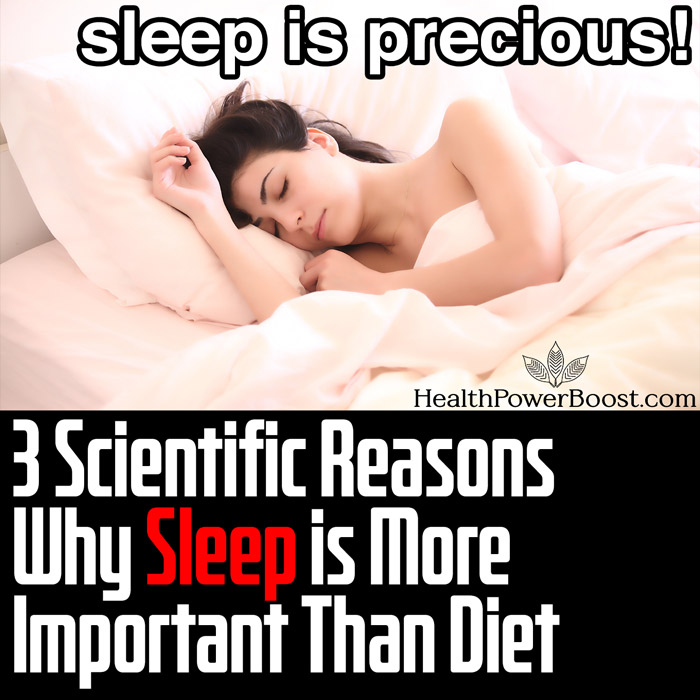This website is not medical advice. Posts may contain affiliate links from which I earn commissions at no additional cost to you.
Sleep problems affect as many as 50 percent of our population aged 60 years old and older, with 12 to 20 percent affected by an insomnia disorder. Insomnia is a condition characterized by difficulty initiating or maintaining sleep, or problems with falling back to sleep after waking. [1] In fact, the Centers for Disease Control and Prevention (CDC) reports that 35.2% of American adults suffer from short sleep duration, which is sleeping less than 7 hours in a 24-hour period. [2]

Shawn Stevenson, best-selling author and founder of the number one health podcast on iTunes, The Model Health Show, covers the importance of sleep in his book Sleep Smarter: 21 Essential Strategies to Sleep Your Way to a Better Body, Better Health, and Bigger Success [3] Shawn became interested in health after he was diagnosed with a degenerative bone disease when he was 16 years old. Since then, he has made it his life’s work to find ways to stay healthy and heal his body – good sleep habits being one of the major contributors to restoring his health.
1. Sleep And Healing
While battling with his condition, Shawn found that aside from diet and exercise, sleep played an important part in his healing process. According to Shawn, if you’re not sleeping well, you’re not healing well. This is true – in a study published by Vitale, et. al. in 2019, sleep hygiene was important in optimizing recovery among athletes, which benefited overall athletic performance through reaction time, accuracy, strength, endurance, and cognitive function. [4] The human body was able to recover faster and more efficiently after good night’s sleep.
2. The Role Of Sleep In Hormone Production
Sleep also plays a big role in the way our body produces vital hormones. Leproult and Cauter in 2010 reported that sleep affects the body’s neuroendocrine function and glucose metabolism, wherein chronic, partial sleep loss increased the risk for obesity and weight gain. Various epidemiologic studies showed that poor sleep led to decreased glucose tolerance and insulin sensitivity and increased evening cortisol, ghrelin, and leptin, which increased hunger and appetite, all of which contributed to weight gain. [5]

Hormones that affect metabolism: Metabolism is made up of two major processes in the body. The first, anabolism, involves hormones that are responsible for growth such as growth hormone, insulin estrogen, and testosterone. The second, catabolism, is the opposite; it is responsible for the breakdown of molecules in the body. According to Shawn, metabolic rate slows during non-REM sleep which is why deep, anabolic sleep is important in staying healthy. The slower your metabolism, the slower the body is able to produce anabolic hormones which can affect growth and repair of cells and tissues. Sharma and Kavuru report that metabolism slows by 15 percent while glucose tolerance was reduced by 40 percent during sleep deprivation. [6]
Hormones that affect appetite: A recurring concept Shawn talks about is appetite and sleep. Our appetite is largely affected by two hormones: leptin and ghrelin. Leptin makes you feel more satisfied or less hungry and staying awake at night makes you produce less leptin, causing hunger and cravings. Sharma and Kavuru reports that a decrease in leptin actually causes cravings for high caloric food – the same concept Shawn discusses in his book. This is because melatonin, which is naturally produced by the body, also triggers leptin production. Insomnia causes depleted melatonin levels, which can also cause leptin levels to drop. On the other hand, ghrelin increases your appetite, and studies have shown that sleep loss causes ghrelin levels to rise. [6]
3. The Role Of Poor Sleep In Weight Gain
In 2011, Nedeltcheva, et. al. published the results of their crossover study on sleep restriction and excess adiposity or body fat. Shawn specifically mentions this study in an interview with Tom Bilyeu and his Health Theory video series on Youtube. The study involved 10 people over a 14 day, 2 period, 2 condition crossover study. The first group slept for 8.5 hours and the second 5.5 hours. All other conditions such as diet and exercise were the same between the two groups. After two weeks, the results showed that the group with less sleep experienced less weight loss as fat by 55 percent: 1.4 kilograms vs. 0.6 kilograms. The researchers concluded that sleep contributed to maintaining fat-free body mass and that lack of sleep could compromise typical dietary and exercise interventions for weight loss. [7]
(Bonus) 4. Sleep And The Aging Process
One of the greatest concerns of not getting enough sleep is how it affects the body’s aging process. When we sleep, the body resets and repairs itself and sleep deprivation can cause problems with these processes.
Shawn claims that losing sleep can actually cause aging. This is true and can be seen in the results of study published in 2012, where short sleep was linked to shorter telomeres. On average, telomeres were shorted by 6 percent in men who slept 5 hours or less compared to those who slept more than 7 hours a night. [12] Telomeres are the ends of our genes which contain genetic material. As we age, these telomeres get shorter and shorter and much of our genetic material is lost, which causes dysfunction in the different organs and systems in the body. Sleep, as we now know, can also cause this and lead to the progression of age-related disorders and diseases.

3 Useful Tips To Improve Your Sleep:
1. Cooler Nighttime Temperatures
Shawn mentions that lower body temperature helps facilitate sleep. While other studies have found that drops in temperature were linked to wakefulness, the pathophysiology of sleep actually dictates that as the body falls into deep sleep, our body core temperature drops. Increases in body temperature would now cause wakefulness or interrupted sleep; especially in humid heat. [8] Applying heat such as through a hot shower or sauna before sleep could actually help with heat loss and cooling of ambient body temperature, promoting better sleep through the night. [9]
2. Exercise Earlier In The Day
According to a study by a graduate student at the Appalachian State University, timing your exercise right can drastically improve sleep and cardiovascular health. The study involved testing aerobic exercise via 30-minute treadmill protocols at 7 AM, 1 PM, and 7 PM. The study concluded that among the three periods throughout the day, morning exercise at 7 AM was able to contribute to deeper, anabolic sleep at night and decrease blood pressure by 25 percent. [10] Shawn mentions that this could be due to less production of cortisol, causing a decreased fight or flight response. He advised doing high intensity interval training (HITT) in the morning, which comprises of 20 seconds of high intensity exercise with 10 seconds rest, for a total of 4 minutes.
3. Go Offline Earlier Before Bedtime
Because of the advent of technology, we seldom find ourselves “unplugged” from our gadgets such as smartphones, laptops, or tablets. However, light exposure affects melatonin, and if you have a habit of using your phone in bed, it can affect your body’s melatonin production and make it difficult to sleep at night. Shawn calls this a “second daytime”, where the light pollution from your gadgets tricks the body that it is still morning, thereby producing less melatonin. According to Smotek, et. al. in 2020, night exposure to short-wavelength light from gadgets caused greater sleep inertia in the morning or difficulty in waking and longer sleep latency, or difficulty falling asleep at night. [11]

3 Scientific Reasons Why Sleep Is More Important Than Diet (Plus 3 Tips For Better Sleep) Graphic © healthpowerboost.com.
Background Photo: Pixabay (PD)
References:
[1] Patel, D., et. al. (2018). Insomnia in the Elderly: A Review. https://www.ncbi.nlm.nih.gov/pmc/articles/PMC5991956/
[2] Centers for Disease Control and Prevention. Short Sleep Duration Among US Adults. https://www.cdc.gov/sleep/data_statistics.html
[3] Shawn Stevenson. Sleep Smarter: 21 Essential Strategies to Sleep Your Way to a Better Body, Better Health, and Bigger Success. https://amzn.to/3AenYjO
[4] Vitale, K., et. al. (2019). Sleep Hygiene for Optimizing Recovery in Athletes: Review and Recommendations. https://www.ncbi.nlm.nih.gov/pmc/articles/PMC6988893/
[5] Leproult, R. & Cauter, E. (2009). Role of Sleep and Sleep Loss in Hormonal Release and Metabolism. https://www.ncbi.nlm.nih.gov/pmc/articles/PMC3065172/
[6] Sharma, S. & Kavuru, M. (2010). Sleep and Metabolism: An Overview. https://www.ncbi.nlm.nih.gov/pmc/articles/PMC2929498/
[7] Nedeltcheva, A., et. al. (2010). Insufficient sleep undermines dietary efforts to reduce adiposity. https://www.ncbi.nlm.nih.gov/pmc/articles/PMC2951287/
[8] Okamoto-Mizuno, K. & Mizuno, K. (2012). Effects of thermal environment on sleep and circadian rhythm. https://www.ncbi.nlm.nih.gov/pmc/articles/PMC3427038/
[9] Romejin, N. (2012). Sleep, vigilance, and thermosensitivity. https://www.ncbi.nlm.nih.gov/pmc/articles/PMC3256315/
[10] Fairbrother, K. (2011). The effects of aerobic exercise timing on sleep architecture. https://libres.uncg.edu/ir/asu/listing.aspx?id=8000
[11] Smotek, M., et. al. (2020). Evening and night exposure to screens of media devices and its association with subjectively perceived sleep: Should “light hygiene” be given more attention? https://pubmed.ncbi.nlm.nih.gov/32197951/
[12] Jackowska, M., et. al. (2012). Short Sleep Duration Is Associated with Shorter Telomere Length in Healthy Men: Findings from the Whitehall II Cohort Study. https://www.ncbi.nlm.nih.gov/pmc/articles/PMC3483149/
😳 What Tinnitus Does To Your Brain Cells (And How To Stop It)
After 47 years of studies and countless brain scans done on more than 2,400 tinnitus patients, scientists at the MIT Institute found that in a shocking 96% of cases, tinnitus was actually shrinking their brain cells.
As it turns out, tinnitus and brain health are strongly linked.
Even more interesting: The reason why top army officials are not deaf after decades of hearing machine guns, bombs going off and helicopter noises…
Is because they are using something called "the wire method", a simple protocol inspired by a classified surgery on deaf people from the 1950s...
★ Does Your Salad Contain This Vegetable?
★ Try This 100% Natural Essential Oil Mix For Nail Fungus:
★ I Can't Help Showing This Off:
If you haven't heard of Claude Davis yet do yourself a huge favor and watch this video.
One of the smartest guys I ever had the pleasure of meeting, Claude set-up a unique prepping system that changed his life forever.
I already tried it myself and let me tell... you I was completely blown away... His surprising tactics could make your life easier and give you the peace of mind you deserve.
Don't just take my word for it... watch his short video and decide for yourself.








